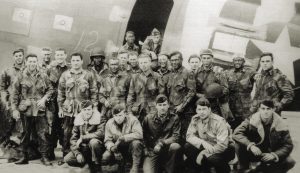Presidents of War: The Epic Story, From 1807 to Modern Times, by Michael Beschloss, Crown Publishing Group, Princeton, N.Y., 2018, $35
With his latest book, celebrated presidential historian Michael Beschloss has firmly cemented his legacy as a scholar of American leadership. Thoroughly researched, expertly written and containing the right balance of anecdotes and trivial tidbits, the book is both highly entertaining and enlightening. The lengthy volume discusses eight U.S. presidents who have guided the nation through war—as well as Thomas Jefferson, who worked to keep the country out of conflict. Beschloss rightly minimizes discussion of military specifics, such as battles and troop deployments, in favor of describing how each president handled the buildup to hostilities, as well as his relations with Congress, the American public, foreign diplomats and the press.
Beschloss presents incredible detail on each president, delving into how personal relationships impacted their decision-making. One such example appears in the final chapters of the book, about President Lyndon B. Johnson’s handling of the Vietnam War. Beschloss includes several conversations between Johnson and close friend Sen. Richard Russell, who initially sought to sway Johnson from sending more troops overseas and broadening the war. Johnson ultimately chose to not heed his friend’s advice, but Beschloss’ inclusion of these discussions further highlights the difficult, and often devastating, decisions wartime presidents had/have to make, sometimes against the advice of their closest advisers.
Overall, Presidents of War is a fantastic piece of work that captures the drama and intrigue of a president’s decision to go to war, the highs and lows of how each managed his own particular conflict, and the key personal relationships that impacted his daily decision-making process. This book is a must read for any student of history with even the slightest interest in the American presidency and how each leader has conducted war throughout the course of U.S. history.
—Chris Booth





